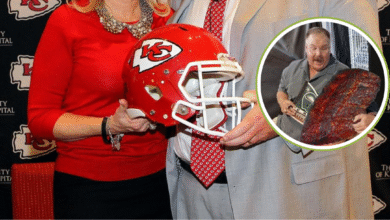Tyson and Tokyo – The Night of Historic Defeat to Douglas
OPINION: This article may contain commentary which reflects the author's opinion.
On February 11, 1990, the Tokyo Dome hosted one of the greatest upsets in sports history. Mike Tyson, the undefeated heavyweight champion, the “Baddest Man on the Planet,” faced James “Buster” Douglas, a 42-1 underdog dismissed by oddsmakers and fans alike. By the end of the 10th round, Tyson lay on the canvas, groping for his mouthpiece as the referee counted him out. Douglas was the new champion, and Tyson’s aura of invincibility was shattered. But the real story of that night wasn’t the knockout. It was what happened afterward, in a Tokyo hotel room, where Tyson confronted his deepest fears in a moment of raw vulnerability never reported until now.
Tyson arrived in Tokyo as a 23-year-old phenom, 37-0 with 33 knockouts, his name synonymous with destruction. He was expected to dispatch Douglas with ease, a formality before bigger fights. But Tyson was not the same fighter who had demolished Michael Spinks in 91 seconds two years earlier. His personal life was in chaos—divorce from Robin Givens, legal battles, and a fractured relationship with manager Kevin Rooney. His training camp was disorganized, his focus wavering. Tokyo, a city of neon and anonymity, became the backdrop for his unraveling.
The fight itself was a disaster. Douglas, motivated by the recent death of his mother, fought with a ferocity Tyson hadn’t anticipated. By the fifth round, Tyson’s left eye was swollen shut, and his corner, unprepared, scrambled to treat it. Douglas landed combinations with precision, while Tyson’s punches lacked their usual venom. In the 10th, Douglas unleashed a flurry that sent Tyson to the mat, ending the reign of the youngest heavyweight champion in history.
The world focused on Douglas’s triumph, but for Tyson, the defeat was a personal apocalypse. After the fight, he retreated to his suite at the Tokyo Prince Hotel, accompanied only by his co-manager, Rory Holloway. There, in the dim light of a foreign city, Tyson broke down. According to Holloway, who spoke years later to a close associate, Tyson collapsed onto a couch, sobbing uncontrollably. “I’m done,” he said. “I’m nothing without this. I’m scared, Rory. I’m so scared.”
The confession was staggering. Tyson, who had intimidated opponents with a stare, who had built a persona of unassailable dominance, was terrified—not of Douglas, but of what the loss meant. He spoke of his childhood in Brooklyn, where boxing had been his escape from poverty and violence. “This was all I had,” he told Holloway. “If I’m not the champ, who am I?” The words revealed a man whose identity was tied to his title, and whose fear of failure had been buried beneath layers of bravado.
Holloway tried to console him, reminding him of his youth and potential for a comeback. But Tyson was inconsolable, pacing the room, his voice rising and falling between despair and defiance. He spoke of his mother, who had died four years earlier, and how he had promised to make her proud. “She’s watching me, and I let her down,” he said, tears streaming. For a moment, Tokyo’s glittering skyline outside the window seemed to mock his fall.
The night in that hotel room didn’t change the trajectory of Tyson’s career. He would return to the ring, reclaiming a portion of the heavyweight title in 1996, but the Tokyo loss marked the beginning of his decline. The public saw a defeated champion, but few knew the depth of his emotional collapse. Holloway kept the story private, honoring Tyson’s trust, though he later confided that the experience humanized Tyson in a way he hadn’t expected.
Tokyo, for Tyson, became a symbol of vulnerability, a place where his myth was shattered. Years later, he reflected on the Douglas fight with a mix of resignation and insight. “Life humbles you,” he said in a 2013 interview, without mentioning the hotel room tears. But for those who know the untold story, that night in 1990 was more than a boxing upset. It was the moment Mike Tyson faced the fragility of his own legend, alone in a city that would forever hold his greatest defeat.



